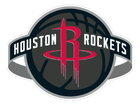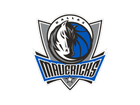The NCAA banned three Division I college basketball players by permanently revoking their eligibility on Wednesday, saying they had bet on their own games at Fresno State and San Jose State and were able to share thousands of dollars in payouts.
The NCAA Committee on Infractions released findings from an enforcement investigation that uncovered violations by Mykell Robinson, Steven Vasquez and Jalen Weaver. The NCAA said the three bet on one another’s games and/or provided information that enabled others to do so during the 2024-25 regular season; two of them manipulated their performances to ensure certain bets were won.

“You all have had quite a cozy relationship with the [Chinese Communist Party],” Blackburn said, pressing Koeing on whether the NBA cut a deal or conceded on the free speech front to shore up their financial interests in China. “Senator, I can certainly confirm that one of the NBA’s most important values is freedom of speech,” Koeing said. “In fact, the example you cited before of Daryl Morey, he was not disciplined or censored in any way in light of the comments that he made .” As for the hearing itself, not much ground was covered, and most of the senators on the Commerce, Science, and Transportation committee — including Sens. John Fetterman (D., Pa), Andy Kim (D., N.J.) and Lisa Blount Rochester (D., Del.) — were no-shows. A handful of senators used their time to pontificate about the Trump administration’s plans to defund PBS and NPR.
Dick Barnett (1936-2025)
Dick Barnett, who helped propel the Knicks to their glory days in the 1970s with his strange jump-shooting style, and who played on the only two N.B.A. championship teams in the Knicks’ history, died in his sleep last night in Largo, Fla. He was 88. The Knicks announced the death, at an assisted living facility, on social media on Sunday, soon after a dramatic victory in a first-round playoff series against the Detroit Pistons. Danielle Naassana, a producer of “The Dream Whisperer,” a PBS documentary about Barnett and his college career that came out last year, said he had become increasingly frail in recent years but did not appear to have a fatal illness.

Stephen Curry: I still feel like I'm in the prime of my career
How do you want people to view your contribution to the game of basketball? Stephen Curry: I still feel like I — I'm in the prime of my career, in a sense of what I'm able to accomplish. Just out there and what the future may hold, trying to achieve, hopefully win more championships, and push the envelope as far as I can.
Advertisement

Stephen Curry: I was undersized, kind of a scrawny, skinny kid on every team I played, even going through the middle school and high school ranks and starting, like, recruiting, quickly found out that those big-time schools weren't going to knock on my door and offer you scholarship offers. And I had to really try to find out what my identity was, proving people wrong, in a sense. I tried to channel that.
“He (Burns) expressed that his world is a PBS world and they have underwriters and if any of those underwriters are even remotely affiliated with the subject, they’re not allowed to be associated with the project. So those rules that are put in place by PBS are very stringent. Obviously, with this project, we weren’t under the same parameters, We are not working in the same parameters. It should be noted that it’s not Michael’s production company. Michael didn’t have a production company. The Jordan brand — meaning Curtis Polk (who manages the financial and business affairs of Jordan and is an executive with the Hornets) and Estee Portnoy (Jordan’s longtime business manager) — gave notes just like ESPN and Netflix and the NBA gave notes. But those were not final cut notes. With a league such as the NBA or MLB or NFL or NHL, if that is inherently not journalistic if they have editorial input, then sports documentaries would cease to exist. Because you have to license the footage through these entities, so they own it. Of course, they get a say in it. We made it very clear early on in this process that we wanted to tell a comprehensive story. No one was interested in this being a puff piece. Most of all, the Jordan brand and the NBA.

Tim Reynolds: Mark Cuban on PBS tonight, when asked if he is running for President: “I’m leaving the door open. ... If it were today, based off the circumstances today, the answer would be no. ... A lot of things can change. A lot of things are happening in real time as we go forward.”
In Washington, Lee had a bona fide movie star to put butts in the seats at the theater. But Lee agonized over casting. “I kept thinking … who am I gonna cast to play Jesus?” Lee told PBS’s Charlie Rose in May 1998, after He Got Game became the director’s first film to open No. 1 at the box office. “I knew I had to get a ballplayer from the NBA to play Jesus … it would’ve been a riskier move getting an actor to show those skills that we needed on the court … you can get away with that in boxing films, baseball films and football films. But for basketball, you need somebody who can play. And there’s no actor today — that I know — that [has] skills like … they’re pro material.” Before filming the project in the summer of 1997, Lee put together a long list of NBA players — from Ray Allen to Kobe Bryant to Kevin Garnett, to Tracy McGrady and more — that he’d consider for the role. But only one could be Jesus. “I was one of the players who was asked to audition,” Marbury said with an abrupt pause, “… to play me.”
Udoh said this in an Uber on his way from the Jazz's practice at the New York Athletic Club in Manhattan to Mott Hall Bridges Academy in Brownsville, Brooklyn. This particular visit was special -- Udoh had heard about the school and its principal, Nadia Lopez, after a viral Humans of New York post led to a TED Talk and a PBS feature. He got in touch with Lopez through a friend, donated books to the school and, eventually, there he was, hugging English teachers. "He came here by himself without an entourage," Lopez said. "He's walking down the hallway, trying to figure out where he's at. He's engaging folks; he's going into classes, talking to people."
Advertisement
Quixem Ramirez: Parker is on Jimmy Kimmel tonight, Duncan will be on Letterman next week. I expect Kawhi to pick some obscure PBS show.